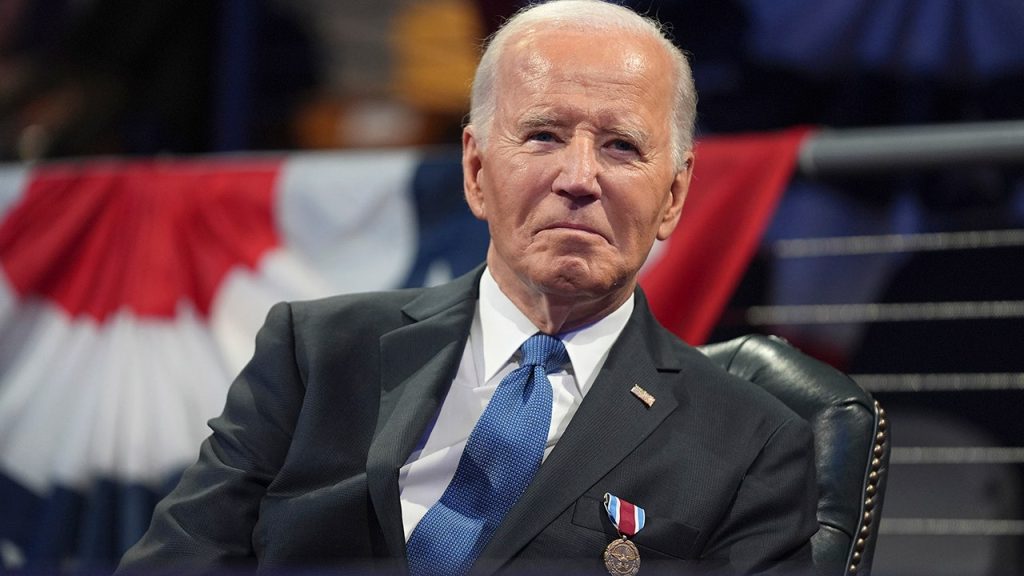Adrian Peeler, a 48-year-old Connecticut drug trafficker, received a commutation of his sentence as part of President Biden’s mass clemency initiative targeting “non-violent” drug offenders. Peeler’s case, however, stands in stark contrast to the stated intent of the clemency grants. In 1999, Peeler orchestrated the murders of Karen Clarke and her eight-year-old son to prevent her from testifying against his brother, Russell Peeler, in a separate shooting case. This act of violence not only silenced a key witness but also tragically ended the lives of a mother and child, leaving lasting trauma on their surviving family members. Despite the gravity of his crime, Peeler was convicted on a lesser charge of conspiracy to commit murder, serving 25 years in state prison. He also pleaded guilty to federal drug trafficking charges and was transferred to federal custody after completing his state sentence. His anticipated release date was 2034 before the commutation.
The clemency grant has sparked outrage and bewilderment, particularly among the victims’ family and law enforcement officials. Karen Clarke’s brother expressed his shock and disgust, emphasizing the renewed trauma the decision has inflicted upon his family. Senator Richard Blumenthal of Connecticut echoed these sentiments, questioning the process that led to Peeler’s release and calling for a review of the pardon system. The initial murder trial and subsequent clemency grant highlight critical issues within the justice system, including the complexities of witness protection and the potential for disparities in sentencing. The case also raises questions about the definition of “non-violent” offenses in the context of clemency initiatives.
The Peeler case is emblematic of a broader pattern within the larger clemency grant. President Biden’s initiative aimed to address perceived disparities in sentencing for drug offenses by commuting the sentences of nearly 2,500 individuals. The White House touted this as an unprecedented act of clemency, emphasizing the focus on non-violent offenders and the disproportionately long sentences they faced. However, the inclusion of individuals with histories of violence, like Peeler, has undermined the administration’s message and raised concerns about the vetting process employed in these clemency decisions.
Beyond the Peeler case, other clemency grants have also drawn criticism. The release of Ferrone Claiborne and Terence Richardson, known as the “Waverly Two,” further illustrates the controversial nature of some of these commutations. These two men were convicted on drug charges related to the death of a police officer, though they were acquitted of the murder itself. Despite their involvement in the events leading to the officer’s death, their sentences were commuted, prompting outrage from the officer’s family and raising questions about the criteria used to determine eligibility for clemency.
The inclusion of these and other arguably violent offenders within a clemency initiative explicitly targeting non-violent drug offenders raises serious concerns about the transparency and consistency of the selection process. While the Biden administration has emphasized the importance of addressing historical inequities in sentencing, the inclusion of individuals with violent histories appears to contradict this stated goal. The lack of clarity regarding the specific criteria used to evaluate clemency petitions contributes to the skepticism and criticism surrounding these decisions.
The case of Adrian Peeler and others like him underscores the need for a more thorough and transparent approach to clemency. While the goal of reducing mass incarceration and addressing sentencing disparities is laudable, the inclusion of individuals with violent pasts, especially those whose actions directly resulted in the loss of life, raises serious ethical and legal questions. Moving forward, greater clarity in defining eligibility criteria and a more robust vetting process are essential to ensure that clemency is granted judiciously and in a manner that upholds the principles of justice and accountability.

